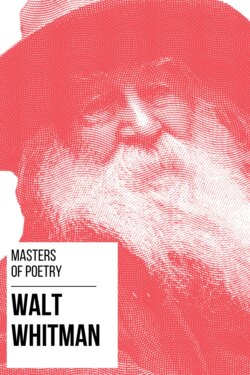Читать книгу Masters of Poetry - Walt Whitman - August Nemo, John Dos Passos, Ellen Glasgow - Страница 52
На сайте Литреса книга снята с продажи.
VII
ОглавлениеMuch light is thrown upon Whitman's literary methods and aims by a remark which he once made in conversation with Dr. Bucke:—
"I have aimed to make the book simple,—tasteless, or with little taste,—with very little or no perfume. The usual way is for the poet or writer to put in as much taste, perfume, piquancy, as he can; but this is not the way of nature, which I take for model. Nature presents us her productions—her air, earth, waters, even her flowers, grains, meats—with faint and delicate flavor and fragrance, but these in the long run make the deepest impression. Man, dealing with natural things, constantly aims to increase their piquancy. By crossing and selection he deepens and intensifies the scents and hues of flowers, the tastes of fruits, and so on. He pursues the same method in poetry,—that is, strives for strong light or shade, for high color, perfume, pungency, in all ways for the greatest immediate effect. In so doing he leaves the true way, the way of Nature, and, in the long run, comes far short of producing her effects."
More light of the same kind is thrown upon his methods by the following passage from the preface to the first edition of his poems in 1855.
"To speak in literature," he says, "with the perfect rectitude and insouciance of the movements of animals, and the unimpeachableness of the sentiment of trees in the woods and grass by the roadside, is the flawless triumph of art." And again: "The great poet has less a marked style, and is more the channel of thoughts and things without increase or diminution, and is the free channel of himself. He swears to his art, I will not be meddlesome; I will not have in my writing any elegance, or effect, or originality, to hang in the way between me and the rest like curtains. I will have nothing hang in the way, not the richest curtains. What I tell, I tell for precisely what it is. Let who may exalt or startle or fascinate or soothe, I will have purpose, as health or heat or snow has, and be as regardless of observation. What I experience or portray shall go from my composition without a shred of my composition. You shall stand by my side and look in the mirror with me."
